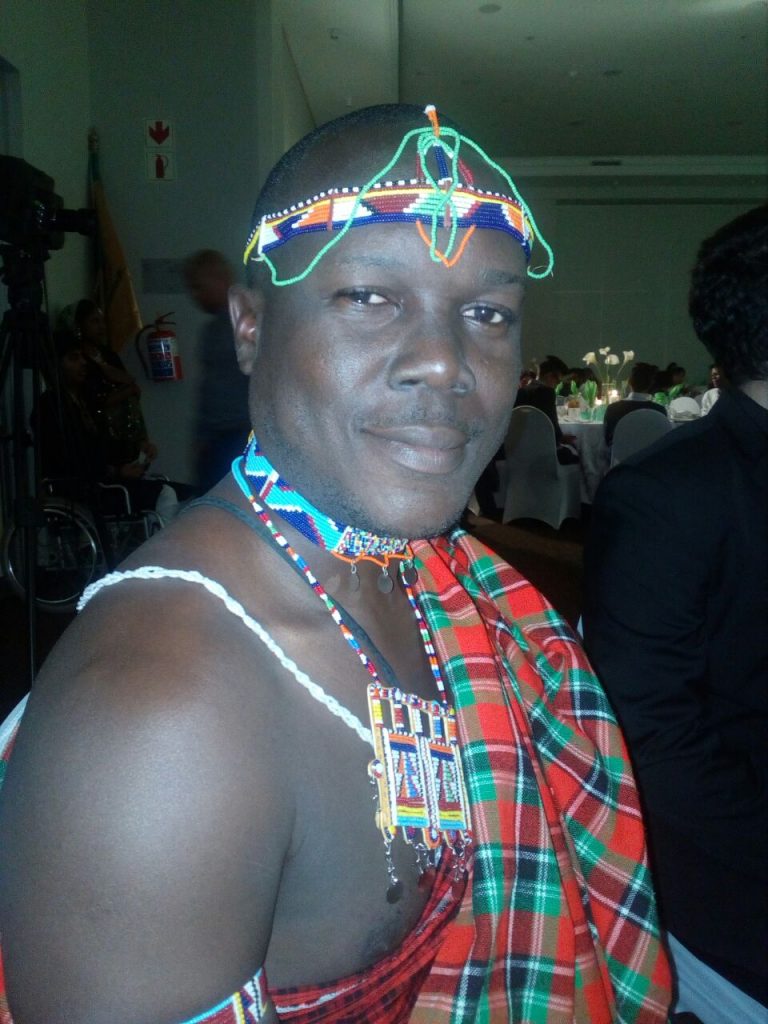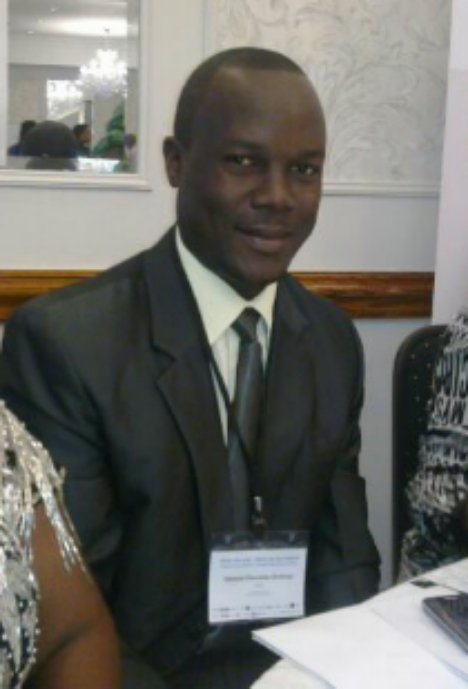‘Every city in Kenya has its own level of anti-gay hostility and acceptance’
By Will Stroude

Ishmael Bahati is the legal and advocacy officer at Persons Marginalised and Aggrieved in Kenya (PEMA Kenya). He is an LGBT activist and psychological counsellor based in Mombasa, Kenya. In 2010, after a series of violent attacks on the LGBT community took place in the coastal region of Mtwapa, Bahati organised the first meeting with religious leaders whose anti-LGBT beliefs fuelled the attacks.
Among other activities, he now facilitates the training of religious leaders to address issues surrounding homosexuality in Islam in Kenya, as well as running a program for queer Muslims, to help them reconcile their faith and sexuality. This came after a three months training for Trainers which was organized by The Inner Circle, a Muslim Human Rights organization in Cape Town South Africa.
Attitude caught up with Bahati after his recent nomination for the Kaleidoscope Trust’s David Kato Award.
What are the different challenges LGBT people in face Kenya?
The challenges LGBT face in Kenya are not uniform. They vary from one region to another. One problem faced in Nairobi might not viewed as a problem in Mombasa. However, the challenge that cuts across is that of the unfavourable laws against the LGBTI community. While it is not illegal to be gay, it is illegal to be found engaging in same-sex relations. And during campaign season, politicians use LGBTI issues to gain support from the larger community. They incite the lager community hence this is the season for likely attacks on the LGBTI persons.
What’s the biggest challenge you face in your work?
The biggest challenge I face as an activist and a religious person is the hostility from my religion. I am viewed as a rebel and as a person who has deviated from Islam by teaching that it is ok to be Muslim and queer, and that one needs to reconcile their religious and sexual identity and no need to drop one for the sake of the other. I also personally find myself having to compromise between the two (my human rights defence and my religion).
How dangerous is it for you to conduct your work?
As a human rights defender, I do my work in radio talk shows with call-in interviews. I also conduct sensitivity training for the religious leaders, judiciary, health service providers, police and media. In addition, I also train queer Muslims on how to reconcile their spirituality and sexuality. This makes me very visible to the public. Some people who come to my training sessions may not like what I say and may hold it against me elsewhere. In most attacks, I remain vulnerable as a person viewed as who installs wrong morals in the society.
I have been evicted three times since people in the neighbourhood couldn’t stand staying with me in the estate. One day, after a local radio interview about a court ruling on the forced anal testing on two gays in the coastal region, I found threat notes in my compound which read “we cannot allow homosexuals to live in our village. We therefore give you a notice of five days to vacate this village, failure to which we will come for your head. You can take this lightly or serious but we mean every word.”
I went to report the matter both to the local administration and the near-by police station but not much help came forth. I was then advised by my friends that I need to vacate this place as soon as possible to avoid any risks that may come with ignoring the notice. Verbal attacks are the order of my day to day experience. I have never been physically assaulted, but there is more to attacks than just physical attacks. Once, my training was attacked by rowdy youths organised by the local administration and many of my participants were injured.

Are you receiving much assistance from local corporations and government bodies or are they resistant to your work?
With the passing of time, things tend to change to the positive – though at a slow pace. Our current constitution is much better and the issues of human rights have been addressed. However, the implementation of the same seem to take long or not practiced. Yes, it is true that the ministry of health has gone steps ahead to recognise and include MSM in the national programming, but the stigma and discrimination is far from done away with. For us to hold any meeting, we have to survey and make sure that he venue is safe and away from possible attacks. Resistance to LGBT issues is so deeply rooted, that even in some human rights arenas LGBT rights are not considered as human rights.
Are there any cities in Kenya where there is a greater acceptance of LGBT people?
Every city in Kenya has their own level of hostility and acceptance. Nairobi being a cosmopolitan city, people seem to be too busy with their own lives, hence most people mind their own businesses to an extent. They are open minded or maybe they just don’t pay attention to LGBTI issues and people.
On the other hand, Mombasa is a conservative town and religion influences almost all laws and decisions here. How one dresses to who is your frequent visitor is a matter of concern to everyone. Gay issues are talked about in hashed tones and are very sensitive. The way one is treated when found or suspected to be gay is determined by what religion, family background and skin colour of origin. For example, during the Mtwapa attack and raids on gay men, the light-skinned (the Arab origin ethnic considered to be the ‘real’ owners and families of Mombasa) gay men were given fair treatment and were not even allowed to spend a night in the police cells. All in all, Mombasa stands out to be the most vulnerable and intolerant region in Kenya compared to others. Hence over 80% attacks reported in Kenya are from the coast region.
What’s your relationship with the police like?
As for now, the relationship is slowly improving due to sensitizations that we do at my organization and other Civil society organizations. But we are not yet there. There are still cases of police not following up with LGBTI related violation cases. Extortion by the police are still reported as well as arbitrary arrests.

To what extent are things improving in Kenya and how will you continue to fight for equality?
Mainstream Human rights organization have done a lot in advocating for all-inclusive human rights thus, there is a lot of awareness on LGBT issues. Health service uptake by the LGBTI population has increased due to sensitivity training, training of the health service providers and the inclusion on MSM in the Ministry of health programming. Most organisations led by the LGBT people have started engaging various stakeholders, decision influencers and the public in LGBTI awareness forums. Meanwhile, media reporting is changing slowly to the positive in regards to LGBT issues.
My plan for the 2017 year is to engage as many stakeholders as possible in my sensitization programs, continue to help my fellow queer Muslims in reconciling their faith and sexuality. To train Trainers of trainers to help me in my advocacy work, to create more forums of direct engagement between the public and openly identifying LGBT persons to enhance coexistence, to advocate for safe space for the LGBTI, to empower the LGBTI on their rights and security through civic education and to engage my local Muslim community with the international progressive Muslims for a level of understanding.
The David Kato Vision and Voice Award is coordinated by the Kaleidoscope Trust, a London-based charity which partners with local LGBT rights organisations and activists in low and middle income countries to advocate the rights of individuals who suffer for their gender identity or sexual orientation. The Trust is a co-founder of The Commonwealth Equality Network, the first group to campaign for LGBT rights within the Commonwealth diplomatic community and institutions.
The award is presented every year in memory of Ugandan LGBT campaigner David Kato, who was murdered in 2011 after a local newspaper published his photo in a feature calling for gay men to be executed. The 2017 winner – Caleb Orozco – was presented with his award in a ceremony at the annual fundraising gala dinner of the Kaleidoscope Trust on January 26th.
More stories:
Colton Haynes shares cute-as-hell bedroom snap with new boyfriend
Inspiring story of forbidden love discovered in Word War Two letters between two men
